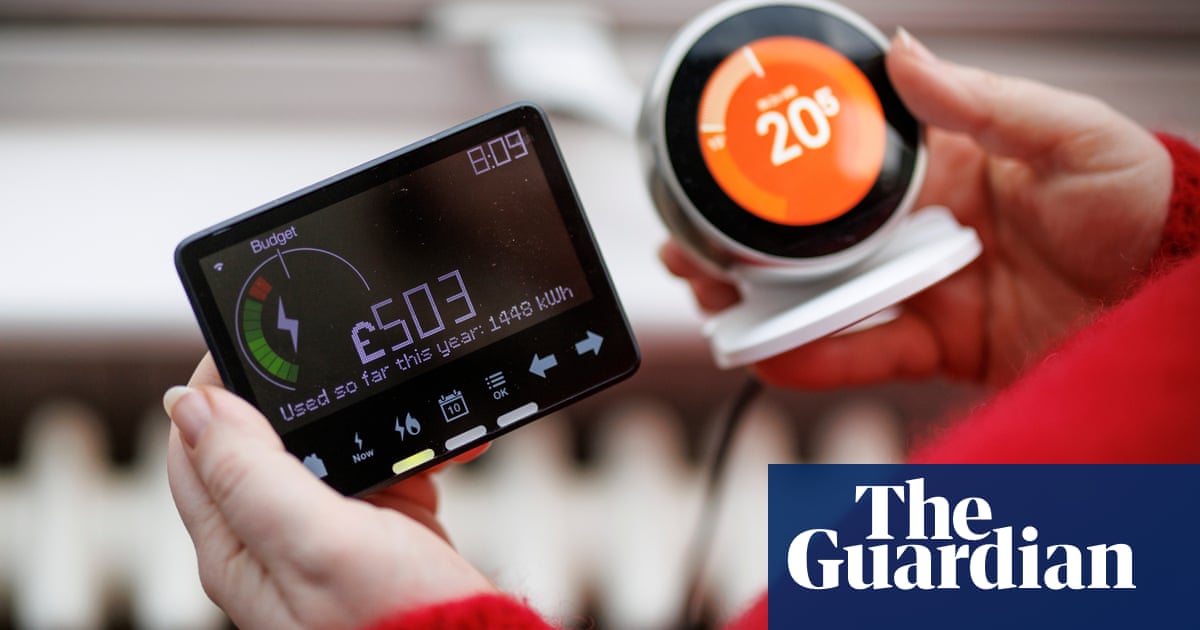Households in Great Britain have been grappling with highenergy billsfor four years but attractive fixed deals that are £300 cheaper than the current price cap are now available.
This week,EDFlaunched its “cheapest fixed tariff since 2021”, describing it as the best energy-only deal available from a “big six” supplier. The 12-month tariff, Simply Fixed Direct May26, is priced at £1,549 for an average dual-fuel customer paying by direct debit. This is £300 below the regulatorOfgem’s latest price cap.
The deal highlights the “great energy bill savings households can nab if they switch” to a fix, according to Will Owen, an energy expert at the price comparison website Uswitch.
Energy watchers may be worried about locking in to a fix given the uncertain economic picture but, based on itsown projections, EDF expects the deal to remain competitive over the next year. It predicts the fix, which is only available until 11.59pm on Sunday, will be at least £148 cheaper than the July price cap, and £111 cheaper over winter. There is also peace of mind in that customers who sign up directly with EDF can switch away again with no exit fee.
Rich Hughes, the EDF director of retail, said: “While wholesale costs have dropped, the market remains unstable and global factors could push prices up again. Given the volatility, we advise households to consider fixed or tracker tariffs.”
Ofgem sets a price cap on household energy bills every quarter by using a formula that tracks wholesale energy prices, as well as providers’ network costs. Since April the cap, which reflects the typical bill for about 29 million households, has been £1,849.
Energy experts at Cornwall Insight, a leading forecaster, predict the cap willdrop by 9%, or £166, from July to £1,683. This is still one-third higher than before Russia’s invasion of Ukraine sparked a global gas crisis and rocketing market prices. If that happens, EDF’s deal will still be less than you would pay on a standard variable tariff.
In recent weeks, gas market prices have fallen on the back of the economic fears linked to the US trade war and the warmer than average start to spring, which has reduced overall demand for heating. Cornwall’s experts expect a “very slight fall” in the price cap in October, followed by another drop in January 2026.
Owen said large suppliers had been vying for customers in recent weeks. “At £300 cheaper than the April price cap for the average household, it stands out as the cheapest fixed deal on the market from a larger provider,” he added.
However, the fixed is the not the cheapest if smaller suppliers are included. Then the lowest-cost is Outfox the Market at £332 below the price cap. The 12-month tariff is called Fix’d Dual May25 12M v5.0 and costs £1,517 for typical usage.
After a period when competition on energy deals has been lacking, it is once again worth shopping around. “The price cap is predicted to fall in July to £1,683, but there are 16 fixed deals available now that are already below this forecasted level,” said Owen.
“If you haven’t switched in a year or more, you are probably on a standard deal and your rates are effectively dictated by the price cap,” he continued. “Energy prices continue to be volatile. If you find a deal which beats the current cap and the July prediction, then switching is a no-brainer. It only takes a few minutes to run a comparison, so it’s worth checking what deals are available to you.”
